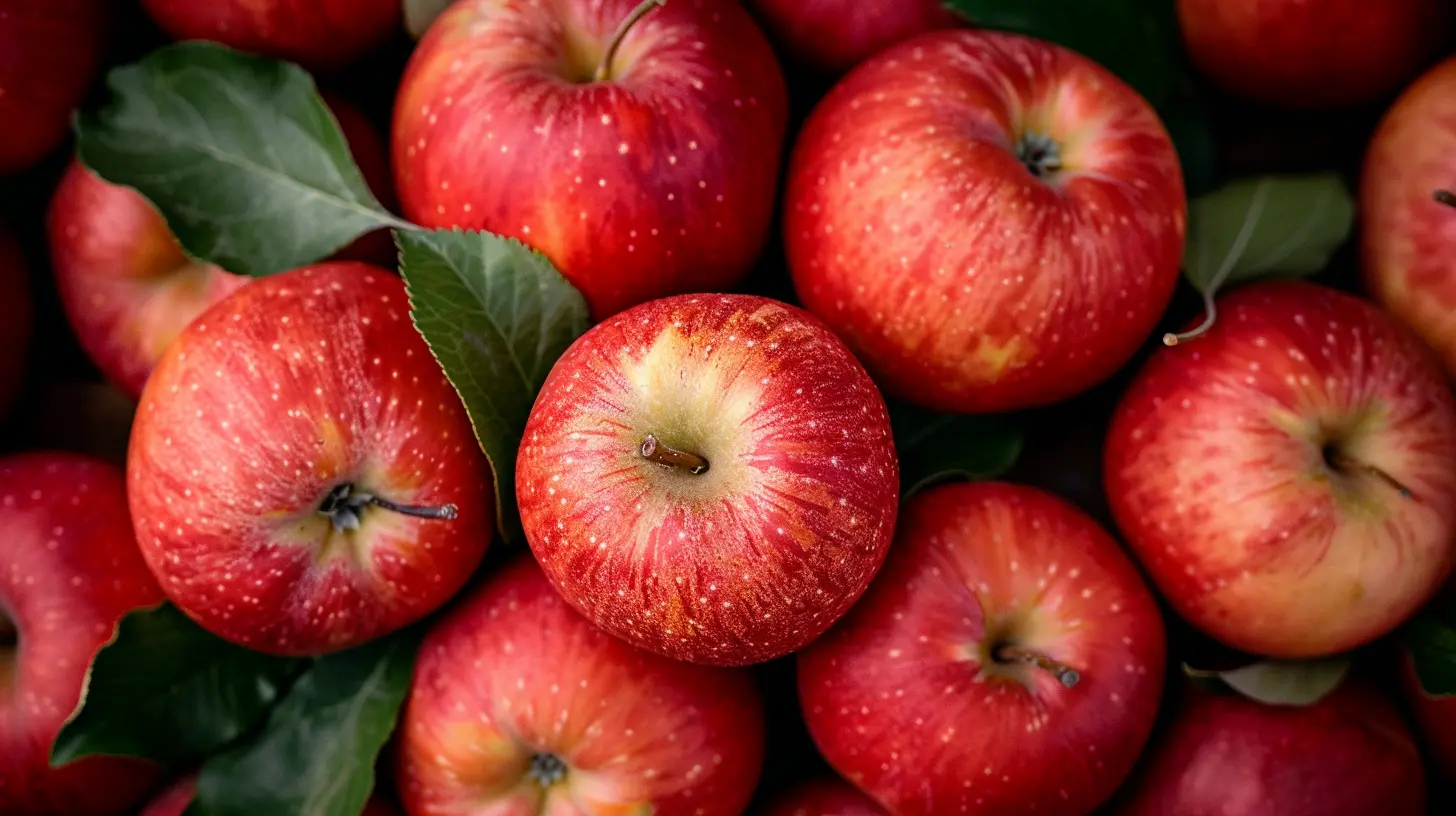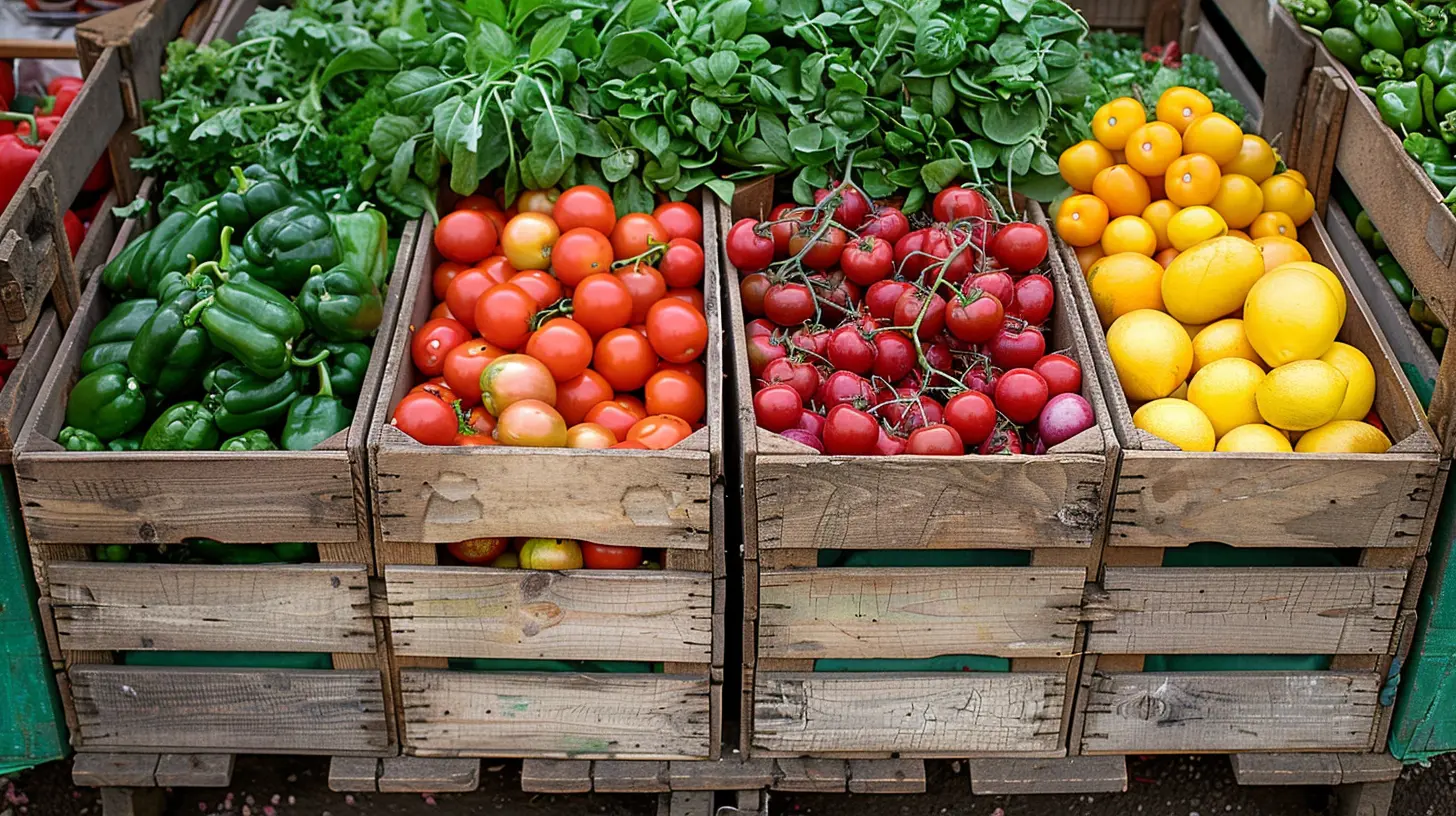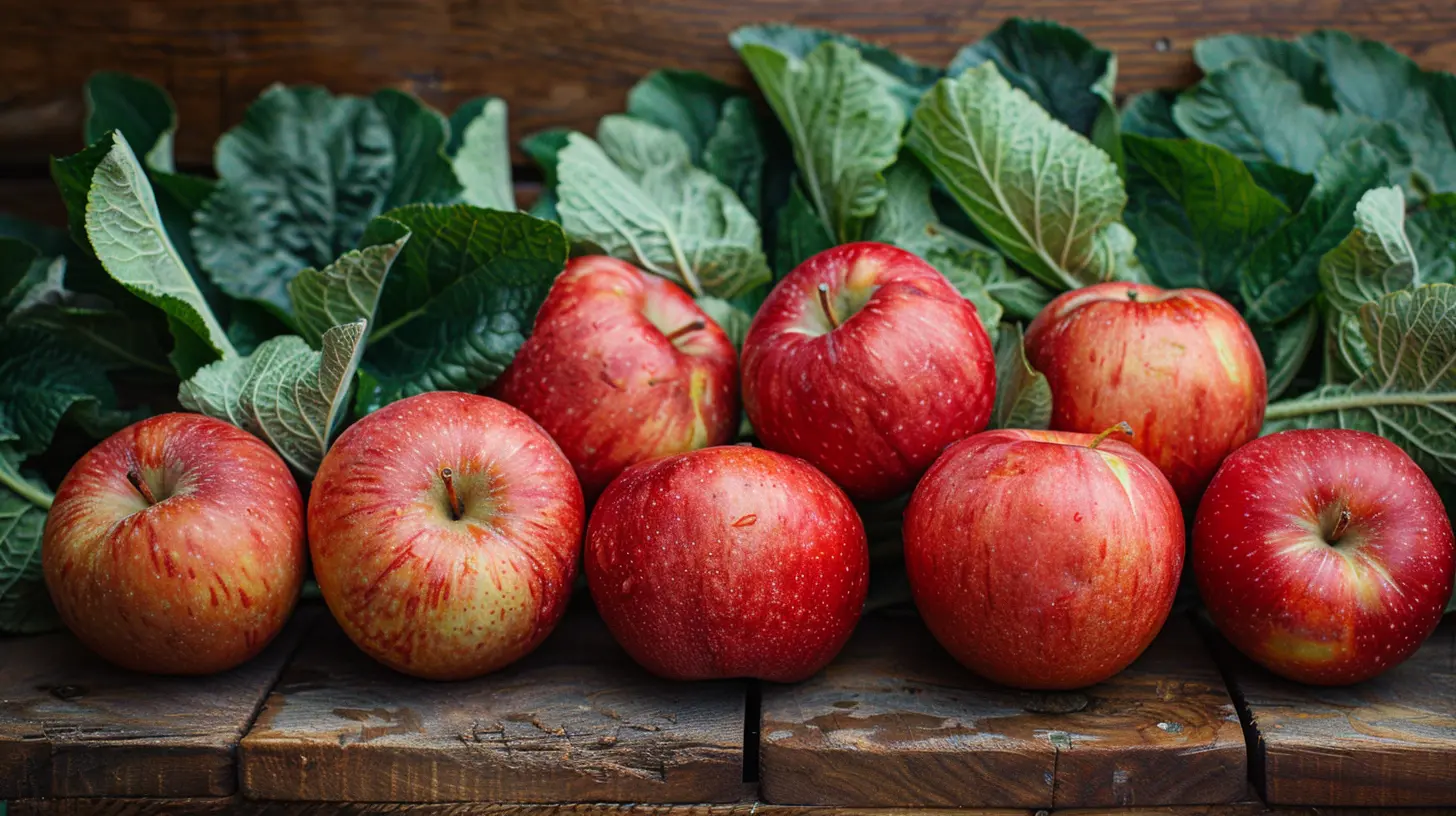The Health Benefits of Eating Seasonally
30 July 2025
Ever noticed how strawberries taste juicier in the summer and pumpkins just seem to hit differently in the fall? Well, that’s no coincidence! Eating seasonally isn’t just about enjoying tastier food—it has some serious benefits for your health, the environment, and even your wallet.
But what exactly does “eating seasonally” mean? Simply put, it means consuming foods that are naturally in season for your specific region. Think of it as aligning your diet with nature’s rhythm, providing your body with exactly what it needs at the right time of year.
In this article, we’re diving deep into why eating seasonally is one of the best things you can do for your health. So, grab a cup of your favorite herbal tea, get cozy, and let’s talk about why your plate should change with the seasons. 
1. Nutrient Density: Mother Nature Knows Best
Did you know that fruits and veggies lose nutrients over time? When produce is picked out of season, it’s often shipped from far away, sitting on shelves for weeks before it reaches your plate. By the time you eat that off-season tomato, it has likely lost a significant chunk of its vitamins and antioxidants.On the other hand, seasonal foods are grown and harvested at their peak ripeness, meaning they’re jam-packed with nutrients. For instance, winter cruciferous vegetables like Brussels sprouts and kale are rich in vitamin C, which helps keep your immune system strong during flu season. And summer berries? They’re bursting with antioxidants that protect your skin from excessive sun damage.
Simply put—nature provides exactly what we need, exactly when we need it. 
2. Better Flavor: Say Goodbye to Bland Produce
Have you ever bitten into a strawberry in the middle of winter and thought... meh, this tastes like cardboard? That’s because most out-of-season produce is either grown in artificial conditions or transported from far away, meaning it doesn’t ripen naturally on the plant.Seasonal fruits and veggies taste fresher, juicier, and way more flavorful because they’re grown under the right conditions and harvested at their peak. Think about biting into a crisp fall apple or indulging in a watermelon on a hot summer day—the taste is unbeatable.
If you want to truly enjoy your meals, eating seasonally is the way to go. 
3. Supports Your Body’s Natural Needs
Ever notice how citrus fruits—loaded with vitamin C—are in peak season during winter? Or how hydrating fruits like watermelon and cucumbers thrive in the summer heat? That’s no coincidence!Nature provides exactly what we need to stay healthy based on the season.
- Winter brings us root vegetables, which are hearty, warming, and packed with fiber to keep us full.
- Spring offers leafy greens to help detoxify and refresh our bodies.
- Summer is all about hydrating fruits and berries to help us beat the heat.
- Fall provides nutrient-dense squashes and pumpkins to prepare us for colder weather ahead.
Eating seasonally means your body gets the right nutrients at the right time. It’s like syncing your diet with the Earth’s wisdom! 
4. Reduced Exposure to Chemicals
When fruits and vegetables are grown out of season, they’re often treated with artificial ripening agents, preservatives, and pesticides to keep them “fresh” long enough to travel long distances. Some are even grown in greenhouses under unnatural conditions, which can affect their nutritional profile.On the other hand, seasonal produce is more likely to be grown locally and naturally, meaning fewer chemicals and more wholesome goodness. If you’re trying to cut down on your exposure to synthetic substances, seasonal eating is a great place to start.
Bonus tip? Shop at local farmer’s markets to get the freshest produce without unnecessary pesticides!
5. Supports Gut Health
Your gut microbiome—aka the trillions of bacteria living in your digestive system—absolutely thrives on variety. The more diverse your diet, the healthier your gut becomes.Eating seasonally means your meals are constantly changing throughout the year, exposing your gut to a wide range of fibers, antioxidants, and beneficial plant compounds.
Gut health is directly linked to everything from digestion to immune function to mental clarity. So, by following the seasons, you’re not just making your taste buds happy—you’re nourishing your gut, too!
6. Budget-Friendly and Easier on Your Wallet
Let's be real: healthy eating can sometimes feel expensive. But eating seasonally is actually a game-changer for your grocery bill.When produce is in season, there’s an abundance of it, which naturally drives down prices. Compare the cost of summer tomatoes to the price of those same tomatoes in the middle of winter—you’ll see a huge difference.
Plus, seasonal food doesn’t require expensive transportation, storage, or artificial ripening, making it more affordable for both farmers and consumers.
So, if you want to eat healthier without breaking the bank, simply follow what’s in season!
7. Environmentally Friendly and Sustainable
Eating seasonally doesn’t just benefit your body—it benefits the planet, too!When we eat produce that’s out of season, it often has to be imported from other countries, racking up a significant carbon footprint due to transportation and storage. Seasonal, locally grown foods require fewer resources, which means less pollution and less harm to the environment.
By choosing to eat what’s naturally available, you’re reducing your environmental impact and supporting sustainable farming practices. It’s a win-win!
8. Encourages a More Mindful Relationship with Food
There’s something truly special about eating with the seasons. It connects us with nature, encourages us to appreciate where our food comes from, and helps us become more mindful eaters.When you start tuning into seasonal eating, you’ll notice yourself looking forward to certain foods at specific times of the year—like the first bite of a ripe peach in summer or the warmth of a homemade pumpkin soup in fall.
This kind of awareness fosters gratitude and appreciation for the food we eat, making mealtime more meaningful and enjoyable.
How to Start Eating Seasonally
Ready to embrace seasonal eating? Here are some easy ways to get started:- Shop at local farmer’s markets – These offer the freshest seasonal produce while supporting local farmers.
- Check a seasonal food guide – Look up what’s in season in your region before planning your meals.
- Grow your own food – Even a small herb garden can help you eat seasonally.
- Join a CSA (Community Supported Agriculture) program – This provides you with farm-fresh seasonal produce regularly.
- Eat more whole foods – Limiting processed foods naturally shifts your diet toward what’s fresh and in season.
Making small changes toward seasonal eating can have a huge impact on your health, wallet, and overall well-being!
Final Thoughts
Eating seasonally isn’t just a passing trend—it’s a lifestyle choice that supports your body’s natural needs, enhances food flavor, and reduces harmful chemicals in your diet. Plus, it’s budget-friendly, sustainable, and great for your gut health.So, why not give it a try? Start slowly, make small changes, and soon enough, you’ll notice the incredible benefits of aligning your diet with the rhythm of nature.
At the end of the day, food is meant to nourish and bring joy. And what better way to enjoy it than by eating what’s naturally available, fresh, and delicious?
all images in this post were generated using AI tools
Category:
Healthy ChoicesAuthor:

Laurie Barlow
Discussion
rate this article
1 comments
Beatrice McVey
Great article! Embracing seasonal eating not only enhances our health with fresh, nutrient-rich foods but also supports local farmers and sustainability. It's a simple yet powerful way to connect with nature and nourish our bodies. Let's savor the seasons!
August 25, 2025 at 2:29 AM

Laurie Barlow
Thank you! I'm glad you enjoyed the article. Embracing seasonal eating truly does benefit both our health and the environment. Let's continue to appreciate nature's bounty!


